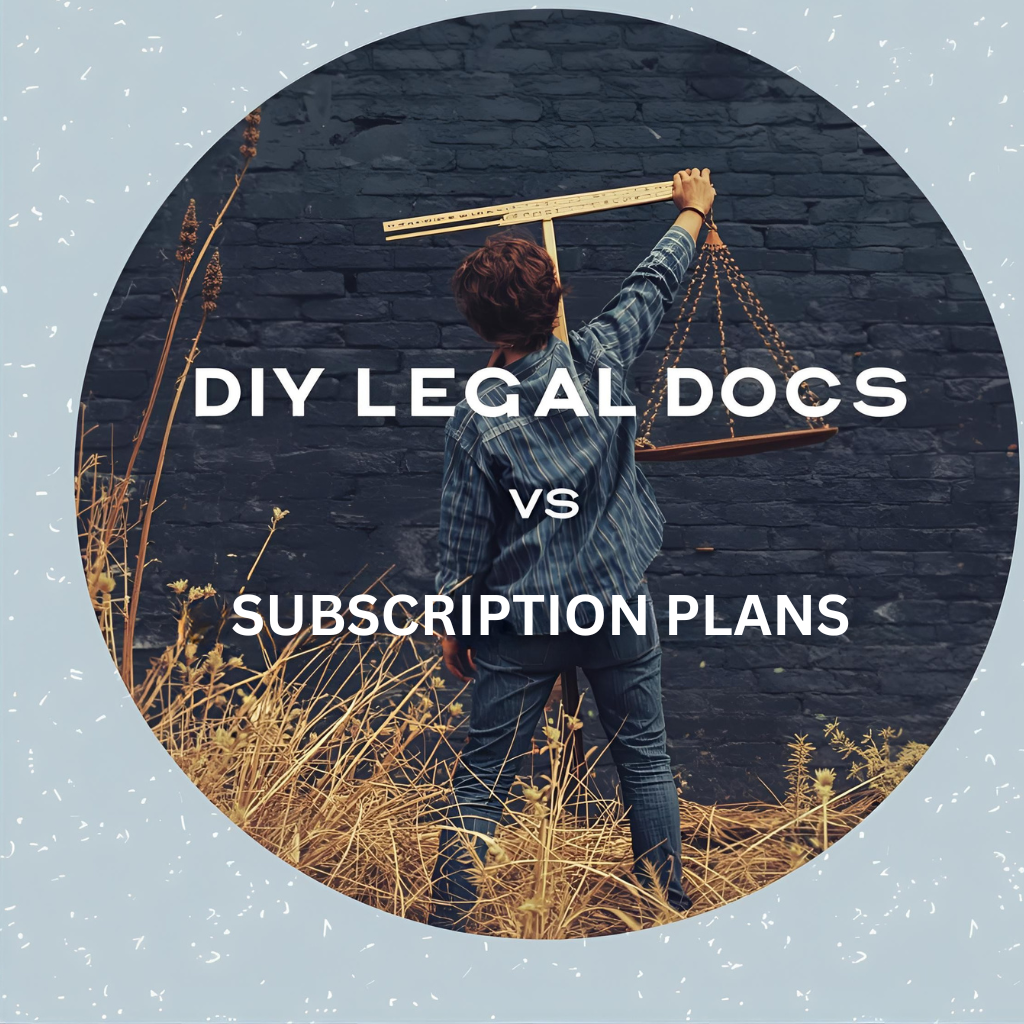
DIY Legal Docs vs. Subscription Legal Plans: Which Is Right for You?
If you’ve ever asked whether it’s better to build your own legal documents or sign up for a low-cost monthly plan that gives access to real lawyers, you’re not alone. This guide breaks down the pros, cons, costs, and the real-life scenarios where each option wins.
What we mean by “DIY legal docs” and “subscription legal plans”
DIY legal docs: Online platforms that let you create legal forms yourself using questionnaires and templates. They’re usually pay-per-document or low-cost single purchases.
Subscription legal plans: Monthly (or annual) services that give you access to licensed attorneys for advice, document review, and sometimes legal representation depending on the plan.
Side-by-side comparison
| Factor | DIY Documents | Monthly Legal Plans |
|---|---|---|
| Cost structure | One-time fee per document or low-cost templates. | Fixed monthly fee (predictable), often with tiers for extra services. |
| When it’s great | Simple, well-defined forms (e.g., basic will, basic lease, LLC filing). | Ongoing legal needs: business owners, families, freelancers, or anyone who wants quick attorney access. |
| Access to an attorney | Usually none or paid add-on. | Often included (consultations, document review, sometimes trial defense). |
| Customization | Template-driven — limited nuance for complex situations. | Lawyer-reviewed documents and tailored advice available. |
| Risk | Higher if your situation is unusual — templates can miss critical local or factual details. | Lower — attorney oversight reduces risk of mistakes and missed clauses. |
Typical use-cases — which should you pick?
Pick DIY if:
- You need a simple document and are comfortable reading legal language.
- You’re on a one-off budget and willing to accept some risk.
- The matter is routine and you can follow step-by-step instructions (e.g., basic LLC registration).
Pick a subscription legal plan if:
- You want ongoing attorney access (for business, rental property, or family legal questions).
- You need document review rather than creating documents from scratch.
- You’d prefer a predictable monthly cost over unpredictable hourly fees.
How to decide — a quick checklist
- Is this a one-off need? → If yes, DIY might be fine.
- Do you want attorney review or negotiation help? → If yes, go subscription.
- Is the situation likely to change or escalate? → Subscription plans offer long-term protection.
- Are you comfortable with templates and legal research? → If not, subscription is safer.
Real examples (short)
DIY wins: You need a simple last will and testament to record beneficiaries and bequeath personal items, and you have no complex estate assets.
Subscription wins: You’re a small business owner who needs contract reviews, employment agreements, trademark questions, and occasional legal advice — predictable monthly access to lawyers quickly pays for itself.